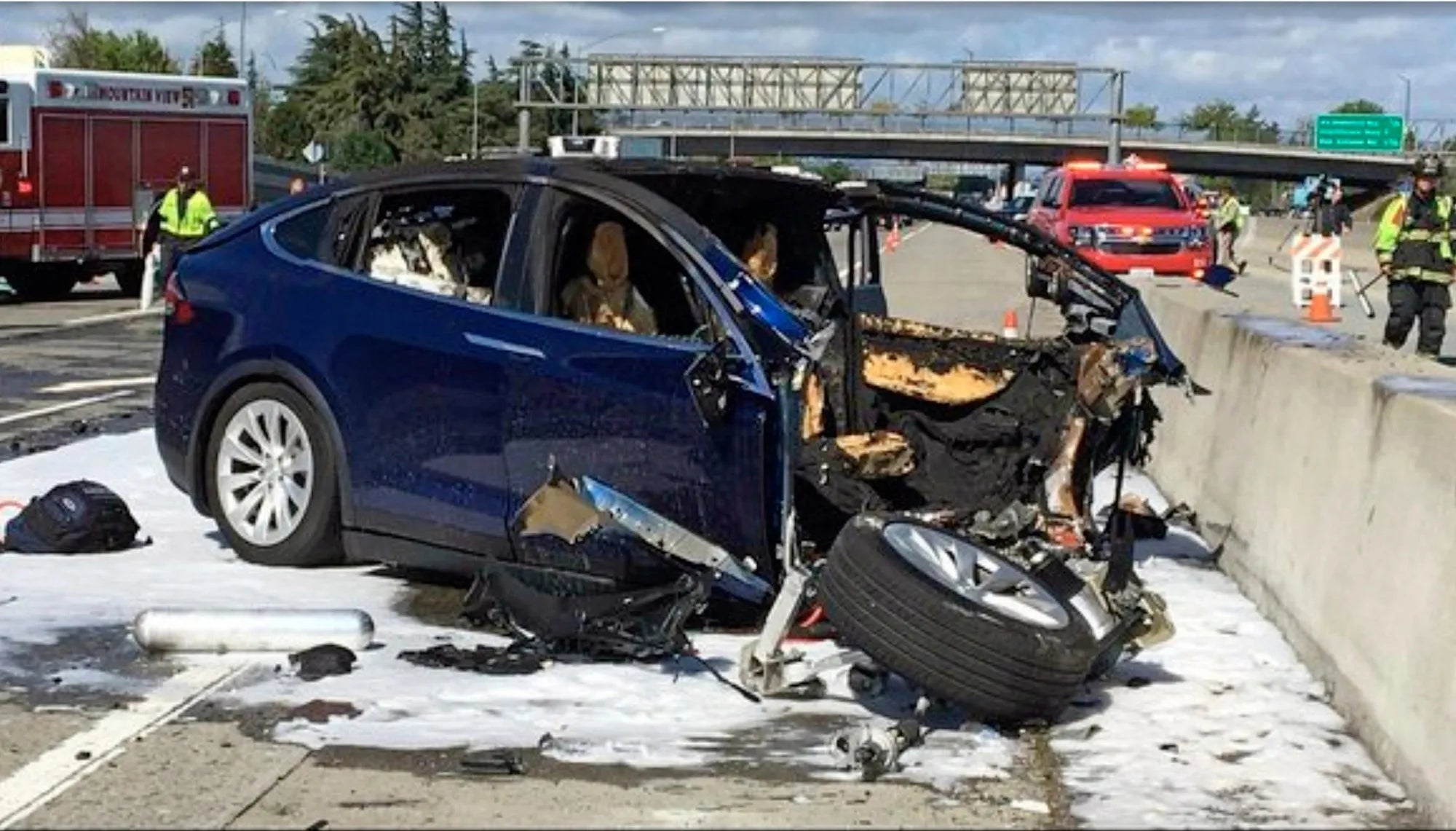Während Tesla seine Ambitionen auf autonomes Fahren vorantreibt, könnte ein entscheidender Gerichtsprozess in Florida die rechtlichen Grenzen autonomer Fahrtechnologien prägen. Der Prozess betrifft den Tod der 22-jährigen Naibel Benavides Leon, die 2019 starb, als ein Tesla Model S – angeblich mit Autopilot – sie und ihren Partner mit 110 km/h erfasste, während sie am Straßenrand Sterne beobachteten.
Was ist beim Crash 2019 passiert?
Der tödliche Unfall ereignete sich in der Nähe von Key Largo, Florida, als der von George McGee gefahrene Tesla Model S von der Straße abkam und mit einem geparkten SUV kollidierte. Benavides Leon wurde 23 Meter weit geschleudert und starb noch am Unfallort. Ihr Freund erlitt schwere Verletzungen. McGee, der überlebte, soll den Autopilot-Modus genutzt und gerade nach seinem Telefon gegriffen haben, als der Unfall passierte.
Tesla behauptet, das System habe ordnungsgemäß funktioniert und der Fahrer sei unaufmerksam gewesen. Die Anwälte der Opferfamilie argumentieren, der Autopilot hätte das geparkte Fahrzeug erkennen und eine Notbremsung einleiten müssen, um den Unfall zu verhindern.
Teslas Rechtsverteidigung und öffentliche Gegenreaktion
Teslas Rechtsabteilung vertritt die Ansicht, dass der Autopilot nicht vollständig autonom sei und die Aufsicht des Fahrers erfordere. Diese Position wird in Benutzervereinbarungen und öffentlichen Mitteilungen betont. Kläger argumentieren jedoch, dass Teslas Markenauftritt und die öffentlichen Äußerungen von Elon Musk den Nutzern ein falsches Gefühl von Autonomie und Sicherheit vermittelt hätten.
Der seit Juli 2025 andauernde Schwurgerichtsprozess in Miami ist ein seltener Fall, in dem Tesla mit Strafschadenersatz für tödliche Unfälle im Zusammenhang mit dem Autopiloten rechnen muss. Richterin Beth Bloom gestand diesen Schadenersatz zu, nachdem sie entschieden hatte, dass die Jury Tesla vernünftigerweise zu dem Schluss kommen könne, dass er „rücksichtslose Missachtung menschlichen Lebens“ gezeigt habe.
Autopilot und tödliche Unfallhistorie
Dieser Fall ist kein Einzelfall. Seit 2016 haben die US-Behörden über 30 Vorfälle untersucht, bei denen der Autopilot zum Einsatz kam, darunter mindestens 15 tödliche Unfälle. Im Dezember 2023 rief Tesla 2,3 Millionen Fahrzeuge zurück, um die Fahrerüberwachungsfunktionen zu verbessern, darunter Lenkrad-Eingriffsaufforderungen und kamerabasiertes Eye-Tracking.
| Jahr | Vorfall | Status |
|---|---|---|
| 2018 | Tödlicher Unfall in Kalifornien | Unaufmerksamkeit des Fahrers bestätigt |
| 2020 | Fußgänger in Arizona getötet | Untersuchung läuft |
| 2022 | Tödlicher Zusammenstoß mit Sattelschlepper | Autopilot durch NHTSA-Bericht beschuldigt |
| 2023 | Vorfall in Florida (dieser Fall) | Geschworenenprozess läuft |
Leben."
Was für Tesla auf dem Spiel steht
-
Präzedenzfall : Ein Urteil gegen Tesla könnte einen landesweiten Präzedenzfall schaffen und Änderungen in der Vermarktung und Regulierung halbautonomer Funktionen erzwingen.
-
Produktstrategie : Tesla plant die Einführung seiner Robotaxi-Plattform, die auf dem gleichen Full Self-Driving (FSD)-Stack basiert. Dieser Test setzt Tesla unter Druck, die Sicherheit des FSD zu beweisen.
-
Vertrauen der Anleger : Angesichts sinkender Umsätze und Kritik an Musks politischem Aktivismus könnte ein weiterer rechtlicher Rückschlag das Vertrauen der Anleger weiter untergraben.
-
Verbindungen zum KI-Ökosystem : Kürzlich kündigte Musk eine Abstimmung der Tesla-Aktionäre über Investitionen in sein KI-Startup xAI an . Kritiker argumentieren, Musks geteilter Fokus könnte die Produktsicherheit und Verantwortlichkeit von Tesla beeinträchtigen.
Regulatorische Rahmenbedingungen und der Weg in die Zukunft
Die US-Verkehrssicherheitsbehörde NHTSA untersucht weiterhin Teslas Fahrerassistenzsysteme. Analysten erwarten eine strengere Aufsicht durch die Regierung und möglicherweise neue Regeln für die Verwendung von Begriffen wie „Autopilot“ und „vollständig autonomes Fahren“.
Tesla betont, dass der Autopilot bei korrekter Anwendung eine höhere Sicherheit bietet als menschliche Fahrer. Kritiker warnen jedoch, dass übermäßige Abhängigkeit und mangelndes Engagement des Fahrers existenzielle Risiken bergen – insbesondere angesichts der bevorstehenden Einführung von Robotertaxis und KI-integrierten Transportsystemen.
Abschluss
Dieser Prozess in Miami ist mehr als nur ein Gerichtsstreit; er könnte die ethischen und rechtlichen Grenzen des autonomen Fahrens neu definieren. Während die Jury berät, beobachten die Elektroautoindustrie, die Regulierungsbehörden und Tesla-Besitzer aufmerksam die Entwicklung.
Empfohlene Lektüre: Tesla droht in Kalifornien ein mögliches Verkaufsverbot wegen irreführender Werbung durch FSD








Aktie:
Tesla hält Aktionärsabstimmung über xAI-Investition ab, da größere Bedenken hinsichtlich Musks Verpflichtungen bestehen
Tesla Cybertrucks Absturz: Vom Hype zur harten Realität